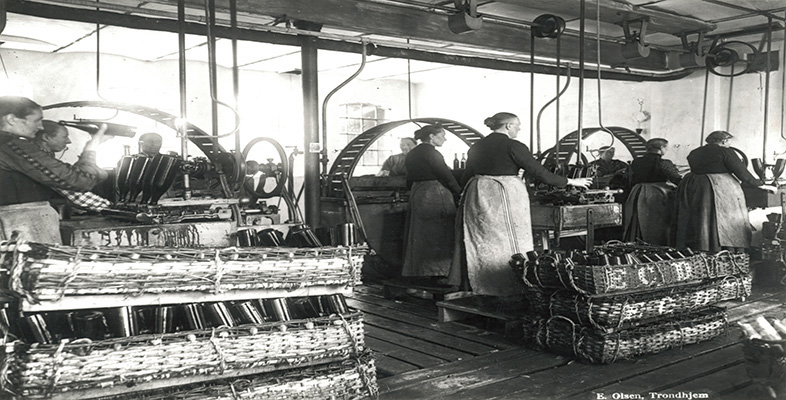Content
The politics of production shaped the content of the new mass media. The rise of American imports across Europe, facilitated in the 1920s by the fact that film was ‘silent’ (that is, in terms of dialogue, but music was typically added at viewing venues), did much to determine popular taste. The popularity of American films in Poland soared during the 1920s – by 1926 they constituted 70.6 per cent of all films shown. However, the introduction of sound led to a 30 per cent decrease in cinema attendance – Polish audiences wanted films in their own language but local production remained limited (Haltof, 2002, pp. 10, 24). Glamorous Hollywood feature films offered escapism, which many viewers desired but which many local production companies eschewed, especially those employed by the state to peddle propaganda. Thus, in France, where the Ministry of Agriculture attempted to use film to educate French farmers on progressive farming techniques, the only way to attract audiences to the village halls, bars and cafes where film projectors had been installed to deliver these messages was to include in the package of reels purely entertaining material such as comedies donated by commercial companies (Levine, 2004). Anti-censorship laws in Weimar Germany encouraged a healthy degree of experimentalism in the production of local films, though much of this proved to be apolitical, perhaps because producers were aware of the need to make money (Laqueur, 1974, p. 181). In Britain, where large picture palaces owned by three companies – Odeon, Gaumont-British and Associated British Cinemas – dominated the market by the 1930s and treated viewers to a near-exclusive diet of American blockbusters, concerns were raised by cultural elites that these films engendered apathy among the working classes while corrupting English speech and promoting gangster life (Beaven, 2005, pp. 187–90).
Perhaps it is little wonder then that when governments had the ability to control mass media they took to the task with great energy, as was the case with radio broadcasting. In Germany, radio broadcasting was ‘to be above party politics – unlike so many of Germany’s great and influential newspapers and other printed periodicals – and it was not to be subject to the kind of international influence that challenged the independence of the German motion picture industry throughout the 1920s’ (Führer, 1997, p. 724). In Britain, Germany and even Russia the radio was regarded as a tool for the education and enculturation of the masses. During the late 1920s, Soviet radio experimented with the establishment of a ‘university of the air’, transmitting educational broadcasts to around 80,000 pupils (Stites, 1992, p. 83). However, in Britain the insistence of John Reith, director general of the BBC, on a schedule dominated by discussion programmes, lectures, plays and classical concerts encouraged many, and especially working-class, listeners to tune in to the new commercial stations broadcast from the continent in the early 1930s – Radio Normandie (1931) and Radio Luxembourg (1933) – which satisfied the desire for popular music. The BBC’s attempt at compromise, scheduling ‘hot music’ every night from 10.30 pm until midnight, did not please everyone, as this letter from Beryl Heitland to the editor of the Musical Times in September 1933, demonstrates:
As things are, it is surely time that the official B.B.C. heard a Neighbour’s Radio Concert in a big block of modern flats on a warm evening, or in a reasonably crowded street of suburban gardens. Now, are we all to be content to be plagued till midnight, night after night, by the thrum-thrum, and unutterably dreary whine and moan of the jazz band through walls and windows – because it pleases the proletariat? Who will invent for us some device which will keep us sacrosanct from other people’s choices in radio? Please tell us that, Messrs. B.B.C., and till then, marvel not that lovers of music and of a modicum of plain silence lift up their standard against the arch-fiend, noise.
